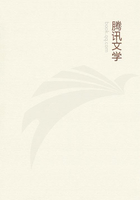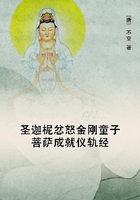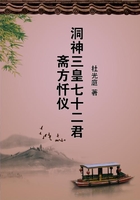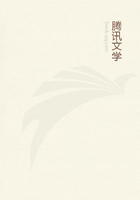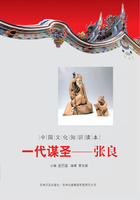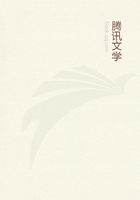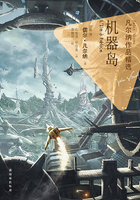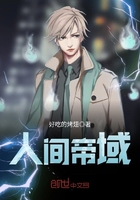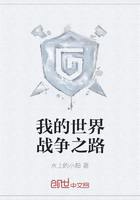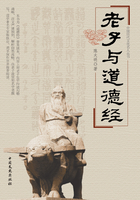Pyotr thought it would not be a bad thing to walk to Moscow on foot; to walk just as he was, with holes in his boots, without a cap, and without a farthing of money. When he had gone eighty miles his father, frightened and aghast, would overtake him, would begin begging him to turn back or take the money, but he would not even look at him, but would go on and on. . . . Bare forests would be followed by desolate fields, fields by forests again; soon the earth would be white with the first snow, and the streams would be coated with ice. . . . Somewhere near Kursk or near Serpuhovo, exhausted and dying of hunger, he would sink down and die. His corpse would be found, and there would be a paragraph in all the papers saying that a student called Shiryaev had died of hunger. . . .
A white dog with a muddy tail who was wandering about the vegetable-garden looking for something gazed at him and sauntered after him.
He walked along the road and thought of death, of the grief of his family, of the moral sufferings of his father, and then pictured all sorts of adventures on the road, each more marvellous than the one before -- picturesque places, terrible nights, chance encounters. He imagined a string of pilgrims, a hut in the forest with one little window shining in the darkness; he stands before the window, begs for a night's lodging. . . .
They let him in, and suddenly he sees that they are robbers. Or, better still, he is taken into a big manor-house, where, learning who he is, they give him food and drink, play to him on the piano, listen to his complaints, and the daughter of the house, a beauty, falls in love with him.
Absorbed in his bitterness and such thoughts, young Shiryaev walked on and on. Far, far ahead he saw the inn, a dark patch against the grey background of cloud. Beyond the inn, on the very horizon, he could see a little hillock; this was the railway-station. That hillock reminded him of the connection existing between the place where he was now standing and Moscow, where street-lamps were burning and carriages were rattling in the streets, where lectures were being given. And he almost wept with depression and impatience. The solemn landscape, with its order and beauty, the deathlike stillness all around, revolted him and moved him to despair and hatred!
"Look out!" He heard behind him a loud voice.
An old lady of his acquaintance, a landowner of the neighbourhood, drove past him in a light, elegant landau. He bowed to her, and smiled all over his face. And at once he caught himself in that smile, which was so out of keeping with his gloomy mood. Where did it come from if his whole heart was full of vexation and misery? And he thought nature itself had given man this capacity for lying, that even in difficult moments of spiritual strain he might be able to hide the secrets of his nest as the fox and the wild duck do. Every family has its joys and its horrors, but however great they may be, it's hard for an outsider's eye to see them; they are a secret. The father of the old lady who had just driven by, for instance, had for some offence lain for half his lifetime under the ban of the wrath of Tsar Nicolas I.; her husband had been a gambler; of her four sons, not one had turned out well. One could imagine how many terrible scenes there must have been in her life, how many tears must have been shed. And yet the old lady seemed happy and satisfied, and she had answered his smile by smiling too. The student thought of his comrades, who did not like talking about their families; he thought of his mother, who almost always lied when she had to speak of her husband and children. . . .
Pyotr walked about the roads far from home till dusk, abandoning himself to dreary thoughts. When it began to drizzle with rain he turned homewards. As he walked back he made up his mind at all costs to talk to his father, to explain to him, once and for all, that it was dreadful and oppressive to live with him.
He found perfect stillness in the house. His sister Varvara was lying behind a screen with a headache, moaning faintly. His mother, with a look of amazement and guilt upon her face, was sitting beside her on a box, mending Arhipka's trousers. Yevgraf Ivanovitch was pacing from one window to another, scowling at the weather. From his walk, from the way he cleared his throat, and even from the back of his head, it was evident he felt himself to blame.
"I suppose you have changed your mind about going today?" he asked.
The student felt sorry for him, but immediately suppressing that feeling, he said:
"Listen . . . I must speak to you seriously. . . yes, seriously.
I have always respected you, and . . . and have never brought myself to speak to you in such a tone, but your behaviour . . . your last action . . ."
The father looked out of the window and did not speak. The student, as though considering his words, rubbed his forehead and went on in great excitement:
"Not a dinner or tea passes without your making an uproar. Your bread sticks in our throat. . . nothing is more bitter, more humiliating, than bread that sticks in one's throat. . . . Though you are my father, no one, neither God nor nature, has given you the right to insult and humiliate us so horribly, to vent your ill-humour on the weak. You have worn my mother out and made a slave of her, my sister is hopelessly crushed, while I . . ."
"It's not your business to teach me," said his father.
"Yes, it is my business! You can quarrel with me as much as you like, but leave my mother in peace! I will not allow you to torment my mother!" the student went on, with flashing eyes. "You are spoilt because no one has yet dared to oppose you. They tremble and are mute towards you, but now that is over! Coarse, ill-bred man! You are coarse . . . do you understand? You are coarse, ill-humoured, unfeeling. And the peasants can't endure you!"
The student had by now lost his thread, and was not so much speaking as firing off detached words. Yevgraf Ivanovitch listened in silence, as though stunned; but suddenly his neck turned crimson, the colour crept up his face, and he made a movement.

